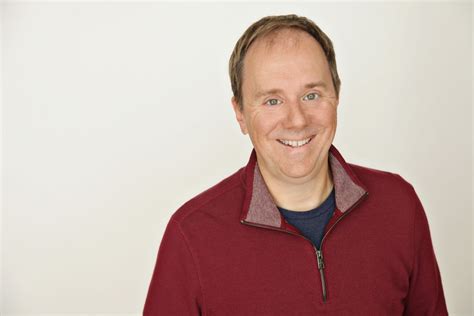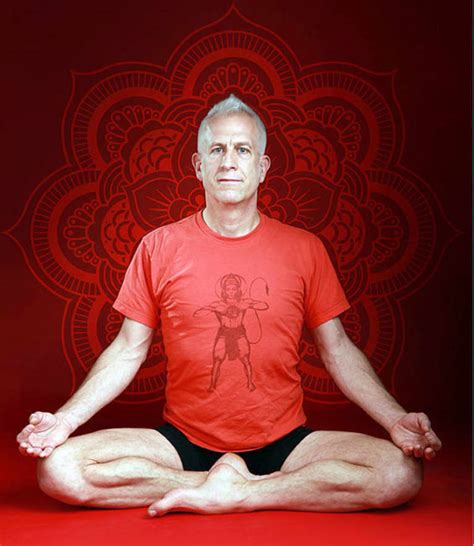A Quote by Neale Donald Walsch
The purpose of all relationships is to create a sacred context
within which you can express the fullness of who you are.
And who you are is an experience you have before
you enter relationship, not because you did.
Quote Topics
Related Quotes
The purpose of relationship may not be what you think. If you are excited about forming a relationship based on what it looks like you can get, rather than what you can give, you have started off on the wrong foot entirely, and you could be heading for a big disappointment. The purpose of all relationships is to create a sacred context within which you can express the fullness of who you are. And who you are is an experience you have before you enter relationship, not because you did.
Most people enter into relationships with an eye toward what they can get out of them, rather than what they can put into them. The purpose of a relationship is to decide what part of yourself you'd like to see "show up," not what part of another you can capture and hold. The purpose of a relationship is not to have another who might complete you; but to have another with whom you might share your completeness.
When there's a strong desire within you to express or create something, know that this feeling is Divine discontent. Your longing is your calling- and no matter what it is, if you go with it, you'll be guided, guarded, and assured of success. When a purpose or path is laid before you, you have the choice to just trust and let it flow, or remain stuck in fear. Trusting the perfection that resides within you is the key.
When we accept Christ we enter into three new relationships: (1) We enter into a new relationship with God. The judge becomes the father; the distant becomes the near; strangeness becomes intimacy and fear becomes love. (2) We enter into a new relationship with our fellow men. Hatred becomes love; selfishness becomes service; and bitterness becomes forgiveness. (3) We enter into a new relationship with ourselves. Weakness becomes strength; frustration becomes achievement; and tension becomes peace.
A text makes the word more specific. It really kind of defines it within the context in which it is being used. If it is just taken out of a context and presented as a sort of object, which is what - you know, which is a contemporary art idea, you know. It is like an old surrealist idea or an old cubist idea to take something out of context and put it in a completely different context. And it sort of gives it a different meaning and creates another world, another kind of world in which we enter.
Man in his madness doesn't realize that God has made him from amoeba to this stage for some purpose. There is a big purpose behind it. And the purpose is that now you have to know your Spirit, by which you enter into the Kingdom of God. You have to enter into the Kingdom of God. How? What is your passport? Is your Spirit. Because when the Spirit starts shining within you, you start transforming. You start transforming into a new being - into a new personality with a new awareness and you are a different person. Your priorities change.
We live in a free society, and freedom means freedom for everybody. We shouldn't be able to choose and say, 'You get to live free and you don't.' That means people should be free to enter into any kind of relationship they want to enter into. Like Joe (Lieberman), I'm also wrestling with the extent to which there ought to be legal sanction of those relationships. I think we ought to do everything we can to tolerate and accommodate whatever kind of relationships people want to enter into.
We can see from the experience of Odin that the image of the tree was the template within which all of the sacred world could be apprehended. The tree was the framework within which one "flew" to these Otherworlds. And since the exploration of sacred space was also a quest into the nature of human consciousness, the tree was regarded as an image of the ways in which we, humans, are constructed psychically. It was a natural model for our deepest wisdom, our highest aspirations.
Everyone is looking for a purpose in life. The reason we all go to the cinema, or online, is because we haven't found a purpose yet. We are always wondering why we're here. But I've learned that we have to create that purpose for ourselves. My purpose, which I finally found thanks to social media, is helping all of these people find their purpose.
I think any relationship that is normal - I mean, there's no normal relationship, but in terms of a flawed relationship, there's always gonna be awkward moments within that because you're addressing things that the world is throwing at you, whether that's distance or whether that's where this is going or other people and past relationships, all these factors.
Everybody naturally wants to abide in that highest frequency of the heart, and it is often through intimate relationships that we are able to fully know this divine love within ourselves. These close relationships provide us not only with the experience of the highest joy and love in life, but also offer the opportunity for profound self-awareness, because each relationship mirrors both our bright attributes and our shadow sides.
The Navajo, for example, regard their traditional lands as within the four sacred peaks. One of those sacred peaks is the San Francisco Peaks where the ski resort, one of the holiest, sacred mountains in Navajo cosmology. I mean, it's considered a horrible desecration. I mean, you know, put it into another cultural context and you wouldn't be able to think of that being, with any other racial group. But for Indians because, you know, we think they really don't care about land or they have primitive ideas or they don't have ownership, we completely disrespect that.

































